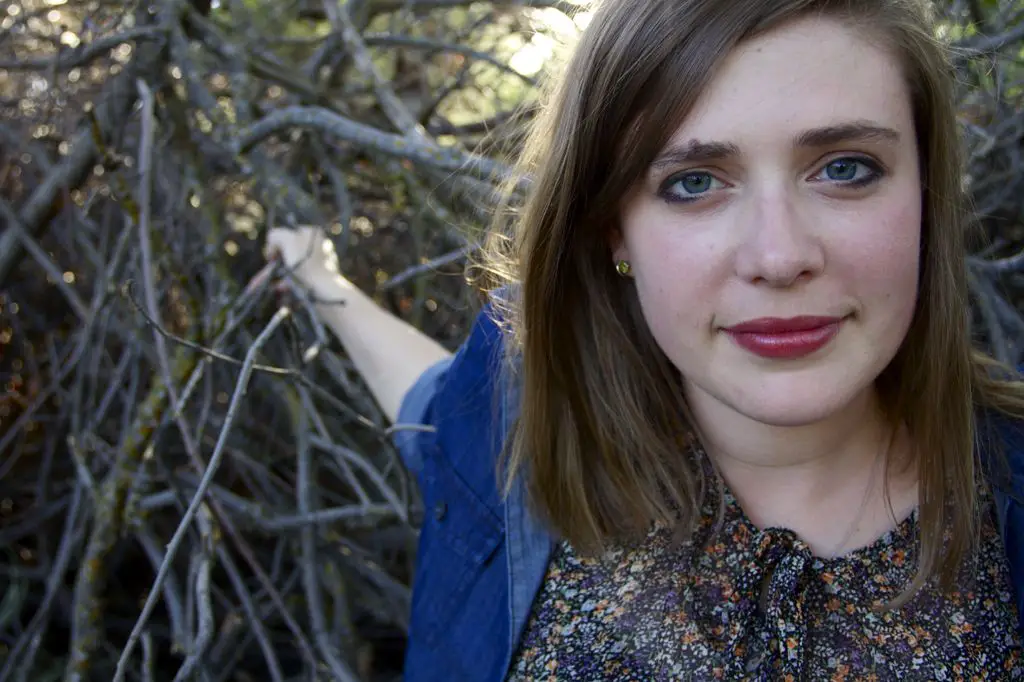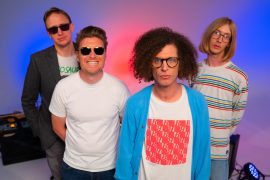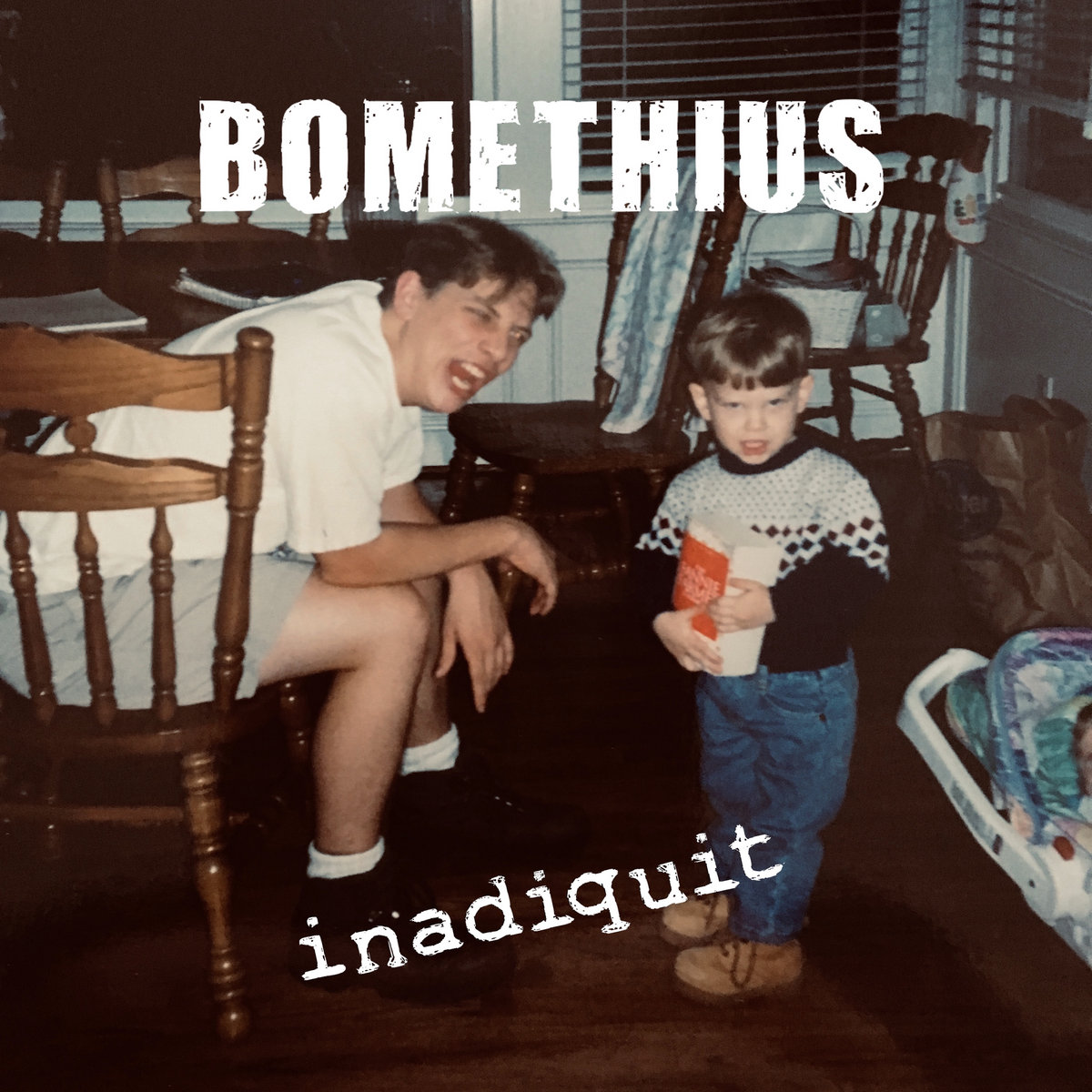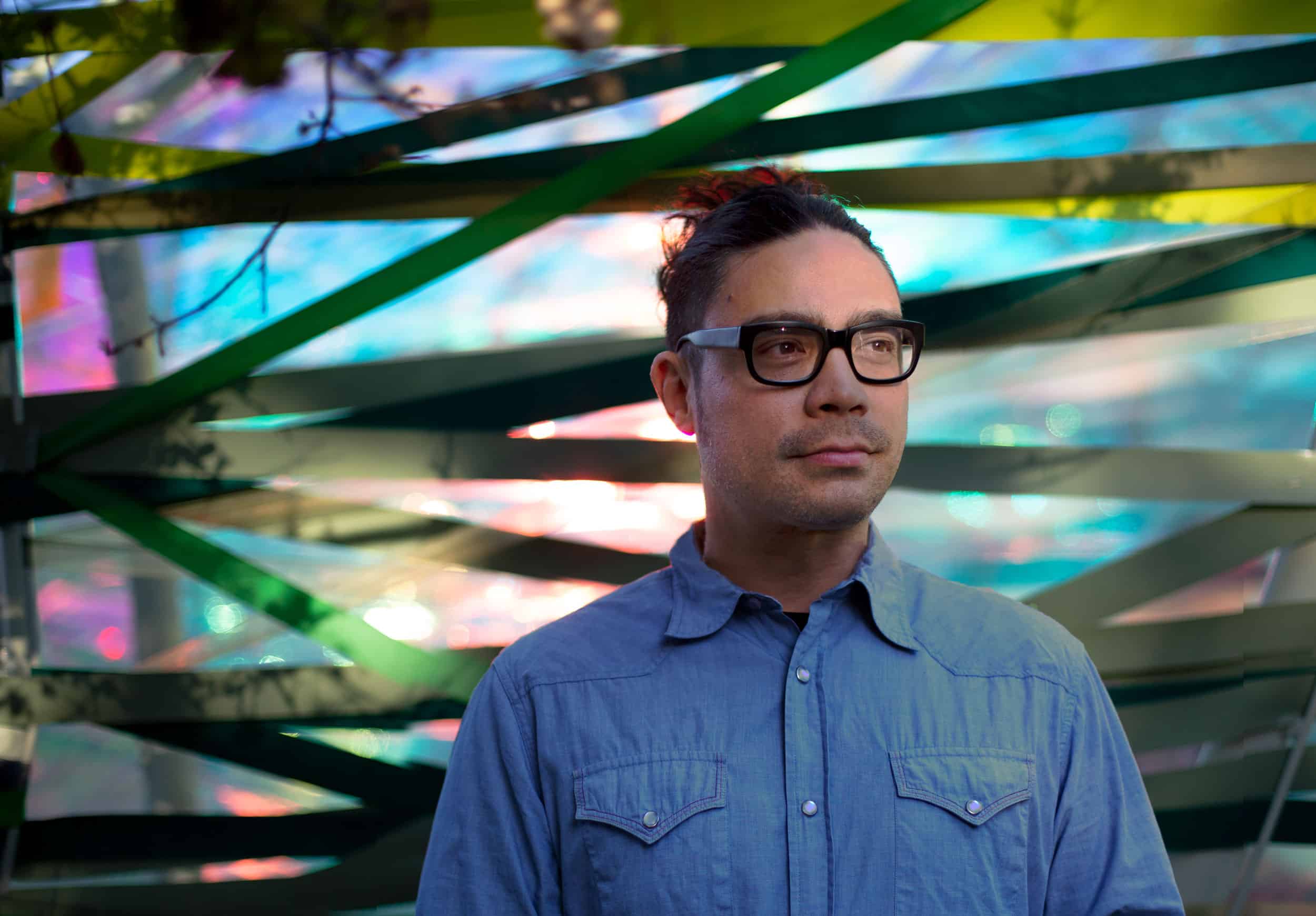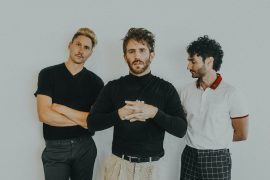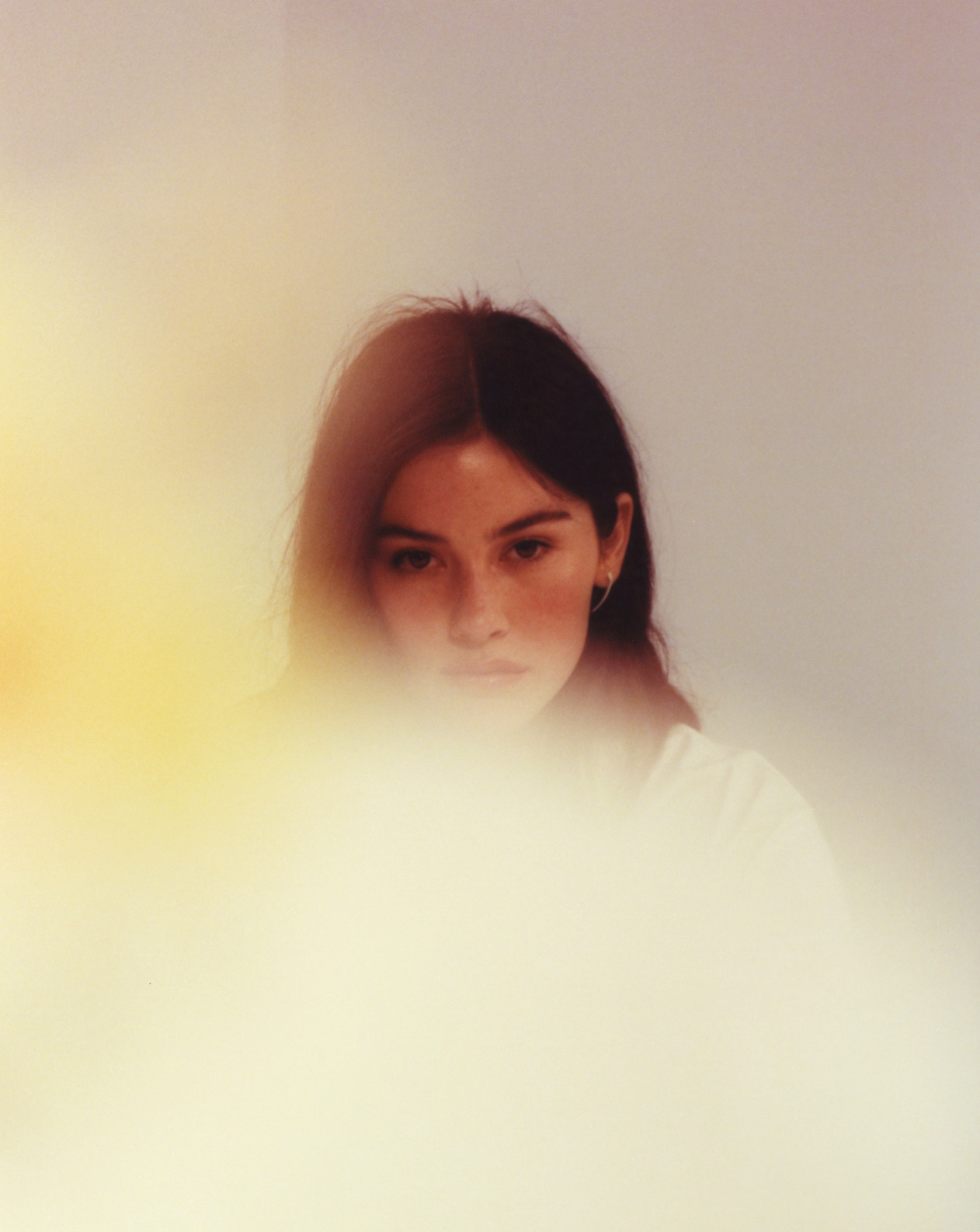So what brought you to New York?
A lot of things, a desire to travel, living in different cities. I’ve lived in California my whole life. I graduated three years ago from Santa Clara. I was there for three years, went on a short tour with my band and then just made the decision to come out here. I have a close friend out here, that we’ve been working on a bunch of projects.
What kind of projects have you been working on in New York?
My friend and I are writing a show together. We both have a background in theatre and we wanted to write a show that incorporated our style of music. It’s turning more into a concept album, so we’re working on that project. And then we’re working on an online creative community that’s about process and collaboration. We call them narrative cycles. We post a work of art and allow other narratives and disciplines to respond. The catalysts pieces have been dance pieces, a poem, a song and people can respond any way.
We’re all about process as opposed to product. So we just want to promote that. When you’re in an academic liberal arts program, you have a lot of room to indulge in the process. You’re encouraged to take on projects. And when you graduate, it does become a lot about the product, what you are producing and how that will help you move forward and feed yourself. But that’s not why we do what we do. So it’s nice to facilitate a place where people can focus on process and put up work that contributes to a greater thing.
Currently we are on narrative cycle 6.
So you call yourself a storyteller?
I do. I have a large appreciation for it. Since hearing feedback on what I’m doing, I realize how true that is. My background is heavily rooted in theatre and story-telling. I get really fascinated about people and how they move throughout their day. I like singing a song about a very specific story. I love folk tale and myth. I think my relationship to other people moving through the world is through that kind of exchange and storytelling. So my music just becomes that.
Is there a recent story that has been inspiring you?
Right now, I’m very fixated on tattoo culture because I moved to green point and I”m living off of manhattan avenue. There’s a famous one, it’s very intricately decorated. So since I’ve been here, I’ve just been really fascinated with the culture and the history. So I’ve just started reading about it. And every time I see someone with one, I ask them about the story about the tattoo. It’s stuff like that where I’ll see an image, and then it just tumbles. Sometimes it becomes a song, or a play, and sometimes I find something else. Sometimes a bunch of them converge. I’ll see an image that’s linked to something else.
Are there any particular stories that have inspired your songs?
One of my songs actually is called Cain. I got really fixated on that story. The morality tale from the bible is pretty cut and dry. But I got fixated it on the level of these two people as people. They are very similar characters. What happens when one is ostracized for something? I approached it from a more human level, and less on a Bible level. Thinking about the story from the perspective of the person deemed evil was very interesting to me.
I think that makes what we do as artists—that’s what continuously makes us want to do work. There are no easy answers so we get to tell stories, listen to people’s stories, and observe things in everyday life. We get to share a variety of thoughts on them and whatever work we’re doing. We get to at least explore them and share the stories from whatever viewpoint at the moment. We’re allowed to indulge in the complexity as opposed to being afraid of it. It just is that.
This reminds me a great deal of the Sufjan Steven’s song 'John Wayne Gacy Jr,' in which he essentially empathizes with a serial killer.
Oh yes, John Wayne Gacy. And then The Decemberists have this song about this horrific group of people that did terrible things. It’s a very melodic, gentle song about this really terrible, scary thing. It’s not the direct visceral comparison but it’s a similar dichotomy.
It’s interesting to be somebody who fixates on stuff like that. Those kind of thoughts are always in your head. You always think about things like that that compel you. And you’re way of acting on that is to write about them, narratively or creatively. It’s just kind of an interesting thing to do and think about.
What song of yours tells a powerful story for you?
I’m so interested in how people respond to them on their own. I learn a lot more about that and it gets more interesting to me. There are some songs that I write where the story comes long after I written in it.
Fugitives is to me right now the one I’m most interested in. When I wrote it, I had just seen, American Hustle. There were a couple moments in those movie— you had all these people running a scam. They all had these tenuous relationships. They have multiple identities. So I was thinking about that and when I wrote the song, there were some other things. And since I’ve written the song, it sort of developed into something unintentional for me. Those are the songs I’m compelled to play longer and like to develop and think about more. That one has developed into new stories and ideas since I’ve written it.
I learned in starting to play solo that there’s a greater investment when I’m a bit more transparent as a person. But it’s important to be able to be vulnerable and be yourself when you’re sharing your music because the more human you let yourself be, people will go along the journey with you. They’ll connect with you more. They’ll be able to hear all the things to think about. When you open yourself up to it, it comes. But when you’re guarded, it makes it harder to do your work. So I’m working on being a little more transparent on that level. And where I can perform songs which are vulnerable. You have to perform and show yourself for it to be vulnerable. You don’t have to give somebody everything but you kind of have to be willing— even just putting work out there. Releasing the two albums I’ve released is like, whoa.
What about acting?
I moved away from acting because I wanted to produce my own projects. And as an actor, you have to be cast in everyone else’s projects. It’s not easy being an actor. I think no matter what approach you take, you are vulnerable when you are acting. Especially from the beginning of the process. Auditioning is the most hellish job interview you can have. You have two or three minutes to prove to them that you’re right for their show, right for this part. You have to be available and present at every rehearsal. It’s a little different because you are taking on someone else’s words but you are still there no matter what. If you are using your experiences directly or just a conduit for the character, it relies on you being present with the people around you.
I’ve written plays—I won’t perform in anything I’ve ever written. I think for me, it’s a little— because I’m so big on collaborating and I love the idea that I can write or create something and hand it over to people and watch it grow into something that I wasn’t expecting. I tend to feel like if I were to act in something that I had written, I would stunt the growth of the piece.
In some ways that is what you are doing.
I try not to put any affectations on it. I just try to be who I am and play the songs that I’m playing. Some people do that and it works. I’ve been compelled by people who are just genuine in the way they play their music. I feel like I’m still working on that.
What artists do you think are really emotionally engaged in their work?
First one that came to my mind, I have a long list, but Keaton Henson. He is a singer-songwriter. It’s just him on an electric guitar and he sings really melancholic, melodic, intimate music. He’s pretty notorious because he has a lot of performance anxiety. So he tends to not like doing shows at all. He doesn’t do interviews. He sends people drawings as answers to interview questions. He’s an amazing visual artists. All of his songs are deeply, deeply personal. When I saw him, I thought that would be a hinderance because he was so afraid. But he was definitely there. And he was so present and grateful to the fact that people are listening. When he played his songs, he was very emotionally involved in his songs. It’s very hard to detach him from his songs when you listen to them. But despite the fear, he was still there doing it. Which I think added a level of commitment to sharing his work that for me was really inspiring. He’s just a singer-songwriter who writes lovely, melodic, personal music. And he performs it that way.
Oh wow I'll definitely check him out. I've always thought of Matt Berninger as someone engaged in his work.
I watched all sorts of videos and I really like him, and am particularly fascinated with him. [The National] is very prolific. They keep putting work out, and keep doing things. It’s one of those situations where you hear them speak and there’s a lot of self-deprecation in what they talk about. And they are just wildly popular and amazing and clearly incredibly talented performers and musicians. No matter what size of the room, they are there. That’s what kills me about people who make music in the arts—the level of insecurity. We all have as human beings, but there’s just this other layer when putting work out into the world. It doesn’t matter who you are.
What’s crazy to me and what I love about being part of that community is that people like him are so insecure, and there’s a lot of fear, but he keeps making work because he has to, it’s just what he does. He’s compelled to do that. I think that’s how it is with all artists. This is how we engage with the world. I can’t imagine not writing music. I can’t imagine not creating things despite crippling self-doubt. But it’s just what you do.
Do you think we’re more drawn to an artist if they are suffering or have self-doubt?
I stray away from the fact that if you have a difficult past you can’t be an artist. I think we’re drawn to people who are human. To see someone who can say, “yeah it’s scary,” is a comforting thing in a really weird way. It makes it seem like these artists who do this work— they are people too. I think that is what people are drawn to. They are not just these super humans who make amazing music. They are also real people who experience what we experience. It makes you feel like a lot more things are possible.
Do you think we tend to see the most humanity from struggles or do we have more ways?
I think there are other ways. I think about people who are really good story-tellers. Mountain Goats, for example. I haven’t seen him live. He’s an incredible storyteller. He just plays his songs. He’s really good at just sitting up there and having a conversation with the audience. It’s very natural. He may be a nut too. If an artist is playing a show and he just talks,…. Also when people make mistakes when they are playing and just have a good attitude about it. There are plenty of ways to not feel so “us and them.”
But what about the stereotype, do we just know other people through their struggles?
It’s the willingness to be vulnerable in the work that you’re doing. That’s what perpetuates the troubled artist. There is a stereotype you need to experience great pain to make great pain. I’ve experienced pain. I have not experienced great pain because I’m a very lucky person. I’ve worked really hard. I’ve not been as conflicted as people like Elliot Smith. But people who are lucky to have a good background can really make great art. It doesn’t have to be exclusive to people who have suffered great pain. But it is a direct track to vulnerability and rawness. And when people hit that, it’s really potent and you can really feel it. Or when they have a tough childhood. When you put raw emotion like that it’s kind of hard to ignore that the great pain is a big thing. But I believe that there are other ways to tap into that besides the pain. I know artists who have done that work without that pain.
It’s crazy, though, I think one of my biggest insecurities is that I’m not a very deeply, tortured person. I have my things, everybody has things. But I’m a fundamentally happy person. And I would say that because of that stereotype because of the tortured artist stereotype. Because there is so much successful, powerful art that comes from that. How do you get to that level of vulnerability and power as somebody who does not identify with that label. Is that possible from the point of being a fundamentally happy person who is grateful and stoked on my life. Sometimes it’s really hard, but I have so much support. How do I dig deeper in what I’m doing. How do I continue to allow vulnerability into my work in a genuine, good way and not take on the tortured artist. I don’t want to be that. It sounds really miserable. But I want to continue to grow and keep making work. I’ve written songs when I’m really unhappy and it’s a way to go through them and process them. Or even just moving across the country. Now is a good time to write songs because it’s hard to start over. But that’s not the level that I function on all the time.
I suppose tapping into your empathy for others is one way to dig deeper without necesarrily feeling the need to struggle yourself. There's enough ugly shit in the world that we shouldn't need to experience.
It’s so true of me and people like me to have a strong amount of empathy. And that turns into an interest in retelling those stories in a new way. We are observers of the world around us and we can take that in and recommunicate that in a way that suits us.
Thanks so much for all your time. I just have one last question for you. Coming from California, what's the one thing you notice that is different about living in New York?
People are very spread apart and very singularly focused here. Which is great, in some ways.It helps but it’s so hard to reach out to people and connect to people. And now more than ever is time to be reinvesting.

